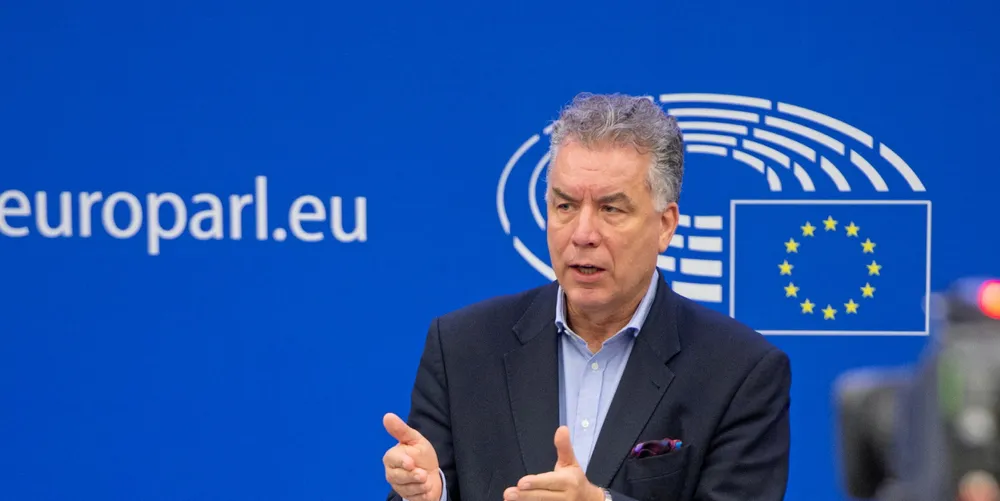European Parliament beefs up EU's answer to US and Chinese clean tech competition
China faces restrictions as a non-signatory to procurement club brokered by World Trade Organisation

EU lawmakers have approved a raft of amendments to the Net Zero Industry Act (NZIA), in an attempt to give the bloc's clean energy industries added resilience, possibly at the expense of Chinese competitors.
The Green Deal included targets for domestic production of "net zero technologies" and proposals to streamline permitting for building clean energy technologies like wind turbines, solar photovoltaic modules, and electrolysers for hydrogen production.
The NZIA was proposed by the EU Commission in March and conceived as a more interventionist response to the introduction of the Inflation Reduction Act in the US, where billions of dollars of tax credits have acted like a magnet to clean tech investments, outpacing Europe in the process.
Attention has also fallen increasingly on China at a time when supply chain constraints and rising costs have inflicted losses on European green technology companies, especially in the wind power sector.
A perception that pioneering European clean tech companies are facing unfair competition turns on the argument that China is using direct and indirect government support to allow its suppliers are able to offer lower prices and generous financing terms.
'Made in Europe'
Some of these concerns were aired by Commission President Ursula von der Leyen in her State of the Union speech in September where she declared that "the future of our clean tech industry has to be made in Europe".
Against this backdrop, the NZIA received numerous amendments when it came through the European Parliament's industry, research and energy (ITRE) committee.
These amendments were adopted in a plenary vote on Tuesday and this version of the law will now go for negotiation with the EU Commission and member states.
The amended version seeks to bolster the resilience of EU clean tech industries with requirements including pre-qualification criteria and weightings for qualitative or non-price criteria in public procurement tenders for designated net zero technologies and auctions to deploy renewable energy.
There were also amendments to require that designated renewable auctions include indexation to help with higher input costs, while EU member states "should, where appropriate, exclude negative bids from auctions as these bids might lead to unexpectedly high energy prices for customers of the deployed renewable energy production".
Member states will be asked to provide a longer term view of estimated public procurement needs for net-zero technology products.
Pan-European lobbying group WindEurope described the amended legislation proposal as offering "tangible measures" to deliver the EU's Green Deal by boosting the European supply chain.
"Indexing auction tariffs to reflect higher input costs, ensuring fair competition on the European market, and pushing back against "race to the bottom auctions will all help, This is the right course of action. It's a simple matter of security, jobs and autonomy," stated WindEurope chief policy officer Pierre Tardieu.
Discussion on how to redesign the auction systems for deploying renewables capacity have been one of the hottest areas of debate in European wind industry events in recent months.
"Getting auction systems right is a fundamental thing for Europe. The system that creates an extremely competitive situation can be paradoxical, where you have to be as aggressive as possible in the hope of winning your project," Wadia Fruergaard, head of policy planning and public funding at Danish OEM Vestas, told a recent offshore wind conference in London.
"This can end up squeezing procurement budgets because you are still working out how to make your business case work. The developers come to us asking for bigger or cheaper products. It can be incredibly difficult," she said.
Chinese knot
More controversially, the NZIA approved by lawmakers includes procurement provisions stating that no more than 50% of denominated net zero technologies products shall originate from countries that are not signatories to the WTO government procurement agreement (GPA).
The GPA seeks to establish a level playing field in public procurement and China is not among is signatories.
So bidders using more than 50% Chinese content could be excluded from public procurement and auctions for renewable energy, potentially impacting large-scale projects, such as wind-farms and solar parks.
Others in the European wind industry are wary of what can amount to local content requirements, and argue that the EU should stick to qualitative requirements that reward technology suppliers with strong track records, as reflected in commitments on availability and service agreements.
Unease
These amendment caused most unease in solar power sector, which relies heavily on Chinese panels, materials and components, although there are some safeguards such as clause that allows authorities to waive the criterion that excludes non-signatories if including it results in no bids at all.
Dries Acke, policy director at SolarPower Europe, praised the shift to using non-price criteria to reward more sustainable and more locally produced technologies, "provided it is phased-in gradually and be tailored to the specific supply chain starting point", but added that the EU parliament position has one "ugly" turn.
"It introduces pre-qualification criteria on local content, meaning that technologies that are partially produced outside Europe are not even allowed to bid into public auctions. This is a red flag for the solar sector and for those committed to the EU’s energy security and climate goals," he stated.
"Two things can be true; We must work harder to support European solar manufacturing, and Europe needs to be part of a globalised solar supply chain to meet climate and energy targets.”
(Copyright)